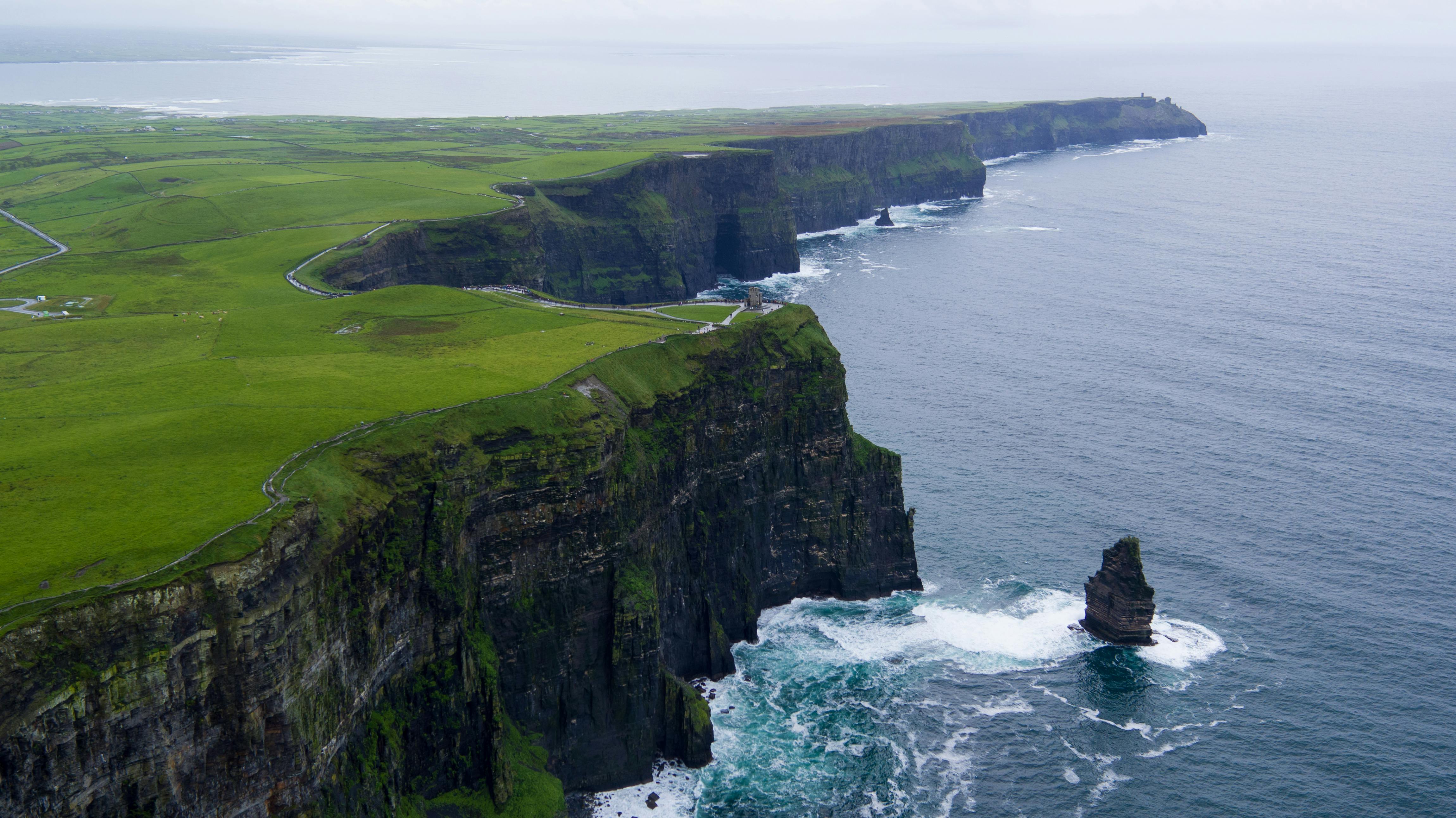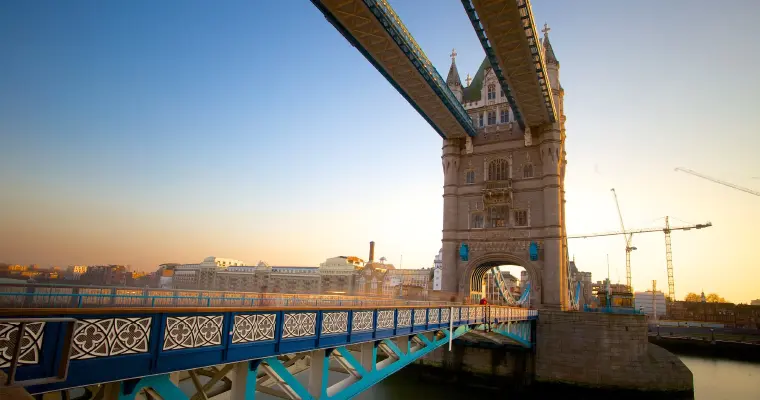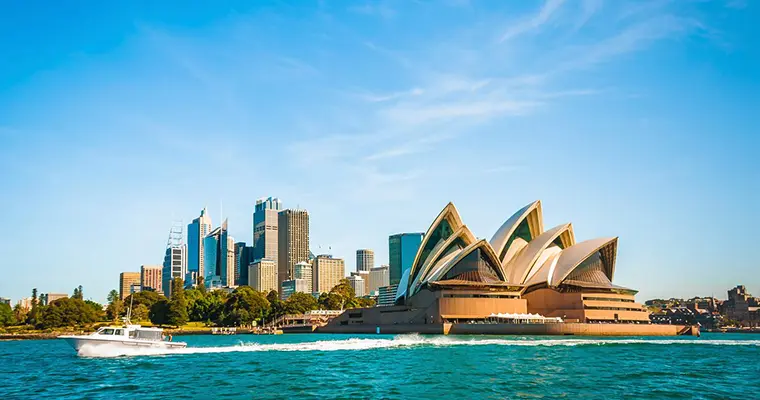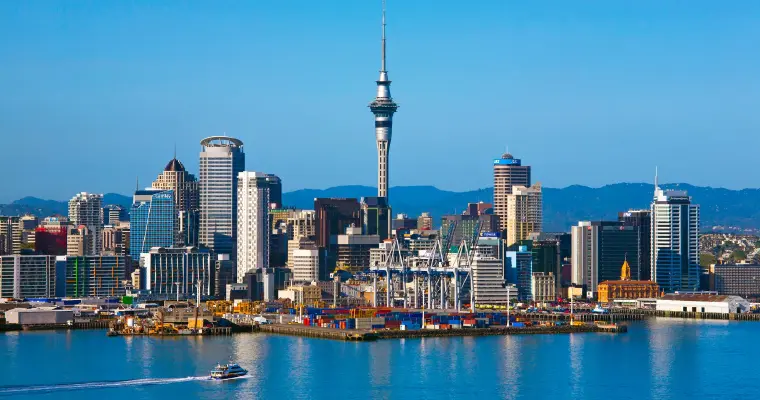Ireland

Study in Ireland from Nepal and enjoy a world-class education, globally recognized degrees, and affordable tuition fees. Gain valuable work experience with part-time job opportunities while studying. Learn about student visa requirements, top universities, scholarships, and cost of living. Start your journey toward a successful future in Ireland with expert guidance and secure your brighter academic and career prospects.
Benefits of Study in Ireland from Nepal
Studying in Ireland offers many great benefits, making it a popular destination for international students. Here are some key reasons why studying in Ireland is a great choice:
- High-Quality Education: Ireland has world-renowned universities and colleges offering top-quality courses in various fields. Degrees from Irish institutions are recognized globally, which can help you build a successful career.
- Affordable Tuition Fees: Compared to other popular study destinations, Ireland offers reasonable tuition fees, making it an affordable choice for international students.
- Work Opportunities: Ireland allows international students to work part-time during their studies and full-time during breaks. This allows you to gain valuable work experience and support yourself financially.
- Safe and Welcoming Environment: Ireland is known for being friendly, safe, and welcoming to international students. You’ll feel comfortable and supported throughout your studies.
- Post-Study Work Visa: After completing your studies, Ireland offers a post-graduation work visa, allowing you to stay and work in the country for up to two years, depending on your qualifications.
Admission Process to Study in Ireland from Nepal:
If you’re planning to study in Ireland, here’s a simple step-by-step guide to the application process:
- Choose Your Course and University:
- Research and select the course and university that best suits your academic and career goals. Ireland offers a wide range of programs at undergraduate, postgraduate, and doctoral levels.
- Check Eligibility Requirements:
- Academic Qualifications: Ensure you meet the academic entry requirements for your chosen course, including previous degrees or qualifications.
- English Language Proficiency: Non-native English speakers need to provide proof of English language proficiency. Commonly accepted tests include IELTS, TOEFL, and PTE. Minimum score requirements vary by course and university.
- Other Specific Requirements: Some programs may have additional requirements, such as a portfolio for creative courses or work experience for certain postgraduate programs.
- Prepare Your Application:
- Gather the necessary documents, including academic transcripts, letters of recommendation, a statement of purpose, and your English language test scores.
- Some universities may require you to apply through their own portal, while others might use the Central Applications Office (CAO) for undergraduate courses or the Postgraduate Applications Centre (PAC) for certain postgraduate programs.
- Submit Your Application:
- Submit your application before the deadline. It’s important to apply early, especially for popular courses, as they can fill up quickly.
- Receive and Accept Your Offer:
- Once your application is reviewed, you will receive an offer letter if accepted. This could be a conditional or unconditional offer.
- Accept your offer by following the instructions provided by the university. You may need to pay a deposit to secure your place.
- Apply for a Student Visa:
- After accepting your offer, apply for an Irish student visa if required. You will need to provide proof of your offer, financial stability, and medical insurance, among other documents.
- The visa process can take several weeks, so it’s essential to apply as early as possible.
- Arrange Accommodation and Travel:
- Once your visa is approved, arrange your accommodation and book your travel to Ireland. Universities often guide available student housing options.
- Pre-Departure Preparation:
- Attend any pre-departure briefings offered by the university or your consultancy. These will provide valuable information about life in Ireland, including cultural norms, academic expectations, and support services.
- Undergraduate Programs:
- Completion of secondary education equivalent to the Irish Leaving Certificate.
- Meeting specific subject requirements for the chosen course.
- Minimum English language proficiency scores (e.g., IELTS 6.0-6.5).
- Postgraduate Programs:
- A relevant bachelor’s degree or equivalent qualification.
- Some courses may require work experience or additional qualifications.
- Minimum English language proficiency scores (e.g., IELTS 6.5-7.0).
- Doctoral Programs (PhD):
- A relevant master’s degree or an exceptional bachelor’s degree with research experience.
- Research proposal and potential supervisor approval.
- Minimum English language proficiency scores (e.g., IELTS 6.5-7.0).
Living Expenses in Ireland for Nepalese Students
Here’s a table outlining the estimated living expenses in Ireland for students:
|
S.N |
Expense Category |
Estimated Cost (Per Month) |
Estimated Cost (Per Month) (NPR) |
|
1 |
Accommodation (Rent) |
€600 - €1,200 |
NPR 84,000 - NPR 168,000 |
|
2 |
Utilities (Electricity, Water, Internet) |
€50 - €150 |
NPR 7,000 - NPR 21,000 |
|
3 |
Food & Groceries |
€250 - €400 |
NPR 35,000 - NPR 56,000 |
|
4 |
Public Transport |
€50 - €120 |
NPR 7,000 - NPR 16,800 |
|
5 |
Mobile & Internet |
NPR 2,800 - NPR 7,000 |
|
|
6 |
Study Materials (Books, Supplies) |
€50 - €100 |
NPR 7,000 - NPR 14,000 |
|
7 |
Health Insurance |
€45 - €100 |
NPR 6,300 - NPR 14,000 |
|
8 |
Entertainment & Leisure |
€100 - €250 |
NPR 14,000 - NPR 35,000 |
|
9 |
Miscellaneous Expenses |
€50 - €150 |
NPR 7,000 - NPR 21,000 |
|
10 |
Total Estimated Cost |
€1,200 - €2,500 |
NPR 168,000 - NPR 350,000 |
The actual expenses may vary depending on the city, lifestyle, and accommodation type. Larger cities like Dublin tend to be more expensive than smaller towns.
Top Courses to Study in Ireland from Nepal
Study in Ireland offers many benefits for international students, including those from Nepal. Here are some of the most popular fields of study in Ireland that attract students from all over the world:
1. Business and Management
Ireland is home to many global business leaders like Google, Apple, and Facebook, making it an ideal place for international students to study in Ireland for business and management. Programs in International Business, Marketing, Finance, and Human Resource Management are among the most popular. These degrees offer excellent career prospects for graduates, both in Ireland and globally.
2. Information Technology (IT) and Computer Science
Tech is one of Ireland’s fastest-growing sectors, with companies like Microsoft, Dell, and Intel. If you're looking to study in Ireland for IT or Computer Science, there are many opportunities to pursue software engineering, data science, artificial intelligence, and cybersecurity. Graduates are highly sought after in the tech industry, with many companies actively recruiting from Ireland’s universities.
3. Engineering
Ireland has a strong demand for skilled engineers, particularly in fields like mechanical, civil, electronic, and biomedical engineering. By choosing to study engineering in Ireland, you can benefit from high-quality programs and a growing job market. Graduates often find work in top companies across the globe, making this a top choice for international students.
4. Healthcare and Medicine
Study in Ireland for international students interested in pursuing a career in medicine, nursing, or other healthcare-related fields. Ireland’s medical schools are internationally recognized, and healthcare professionals are always in demand. Many Nepalese students choose to study in Ireland to take advantage of its exceptional medical education and global career opportunities.
5. Social Sciences and Psychology
Study in Ireland from Nepal in fields like social sciences and psychology, where students can explore human behavior and societal issues. These programs lead to careers in counseling, social work, and related fields. Ireland offers progressive views on social matters and mental health, making it a great place for students to learn and grow in these areas.
6. Tourism and Hospitality Management
With its thriving tourism industry, Ireland is an excellent destination to study tourism and hospitality management. Students can gain hands-on experience in managing hotels, planning events, and leading tourism businesses. For international students interested in this field, studying in Ireland offers a great mix of education and practical exposure.
7. Arts and Humanities
If you have an interest in literature, history, or languages, you can study arts and humanities in Ireland. With its rich cultural heritage and history, Ireland is a great place to immerse yourself in literature, philosophy, and history. Students from Nepal and around the world choose Ireland to explore their academic passions while being surrounded by Ireland’s literary legacy.
Universities in Ireland for Nepalese Students
Here’s a table summarizing the universities in Ireland and what they offer:
|
S.N |
Universities |
Undergraduate Programs |
Postgraduate Programs |
Special Features |
|
1 |
Trinity College Dublin (TCD) |
Arts, Science, Engineering, Business, Law, Medicine, Computer Science, and more |
Business, Law, Arts & Humanities, Science, Health Sciences, Social Sciences |
Top-ranked university, strong research focus, scholarships for international students |
|
2 |
University College Dublin (UCD) |
Engineering, Business, Law, Computer Science, Arts, Social Sciences, and more |
International Business, Economics, Data Science, Computer Science, and more |
Large university, research-driven, extensive student support services |
|
3 |
University College Cork (UCC) |
Science, Engineering, Law, Arts, Business, Education, Medicine, and more |
Health, Science, Engineering, Business, Arts, and Law |
Strong focus on sustainability, leadership in research, scholarships for international students |
|
4 |
National University of Ireland Galway (NUIG) |
Arts, Business, Science, Engineering, Law, Social Sciences |
Science, Engineering, Arts, Health Sciences |
Strong research in marine science, biotechnology, and medical devices, student support services |
|
5 |
Dublin City University (DCU) |
Computer Science, Business, Education, Engineering, Social Sciences |
Technology, Business, Education, Health Sciences, Communication |
Focus on employability, work placements, strong IT and engineering programs |
|
6 |
Maynooth University |
Arts, Science, Business, Engineering, Social Sciences, Education |
Arts, Science, Business, Education, and Law |
Close-knit community, student-centric approach, research in technology and social sciences |
|
7 |
Technological University Dublin (TU Dublin) |
Engineering, Business, Computing, Science, Arts, Social Sciences |
Engineering, Business, Computing, Science, Arts |
Vocational and professional courses, strong industry connections |
|
8 |
Royal College of Surgeons in Ireland (RCSI) |
Medicine, Pharmacy, Physiotherapy, Nursing |
Medical specialties, Healthcare management, and more |
Leading in medical education, extensive clinical placements, and research opportunities |
|
9 |
Limerick University (UL) |
Arts, Business, Engineering, Science, Health Sciences |
Engineering, Business, Education, Computer Science |
Innovation in engineering and technology, industry links, strong sports facilities |
|
10 |
Technological University of the Shannon (TUS) |
Engineering, Business, Health Sciences, Arts, Social Sciences |
Engineering, Business, Arts, Computer Science |
Focus on technical programs, skills development, internships, industry ties |
Student Visa Requirements to Study in Ireland For Nepalese Students
Nepalese students planning to study in Ireland must apply for a Stamp 2 Student Visa (Long Stay 'D' Visa) to stay in the country for more than 3 months. Below are the key requirements and steps for obtaining an Ireland student visa from Nepal:
1. Who Can Apply?
You can apply for a student visa if you:
✔ Have an offer letter from an Irish university or college
✔ Enroll in a full-time course (Level 7 or higher)
✔ Have paid at least €6,000 of your tuition fees
✔ Can show you have €10,000 per year for living expenses
✔ Have health insurance
✔ Plan to return to Nepal after your studies
2. Required Documents
|
S.N |
Required Document |
Details |
|
1 |
Visa Application Form (AVATS) |
Fill out online |
|
2 |
Valid Passport |
Must be valid for at least one year |
|
3 |
University Acceptance Letter |
From a recognized institution |
|
4 |
Proof of Tuition Fee Payment |
At least €6,000 paid |
|
5 |
Financial Proof |
Bank statements showing €10,000 for expenses |
|
6 |
English Proficiency Test |
IELTS (6.0 – 6.5) or equivalent |
|
7 |
Health Insurance |
Required for your stay |
|
8 |
Statement of Purpose (SOP) |
Explaining why you want to study in Ireland |
|
9 |
Accommodation Details |
Proof of where you will stay |
3. How to Apply?
- Apply online at AVATS Portal
- Pay the visa fee (€60 for a single entry, €100 for multiple)
- Submit documents to the Irish Embassy or Visa Center
- Attend an interview (if required)
- Wait for processing (4 – 8 weeks)
4. Can You Work on a Student Visa?
1. Yes! You can work 20 hours per week during your studies and 40 hours per week during holidays.
2. After graduation, you can apply for a Post-Graduation Work Visa (Stamp 1G).
Cost of Studying in Ireland for Nepali Students
The cost of studying in Ireland for Nepali students can vary depending on the institution, course, and lifestyle, but here’s an overview to help break it down:
|
S.N |
Expense Category |
Estimated Cost (Per Year) (EUR €) |
Estimated Cost (Per Year) (NPR) |
|
1 |
Tuition Fees (Undergraduate) |
€10,000 - €25,000 |
NPR 1,400,000 - NPR 3,500,000 |
|
2 |
Tuition Fees (Postgraduate) |
€10,000 - €35,000 |
NPR 1,400,000 - NPR 4,900,000 |
|
3 |
Student Visa Fee |
€60 - €100 |
NPR 8,400 - NPR 14,000 |
|
4 |
Health Insurance |
€500 - €1,000 |
NPR 70,000 - NPR 140,000 |
|
5 |
Accommodation (Rent) |
€7,200 - €14,400 |
NPR 1,008,000 - NPR 2,016,000 |
|
6 |
Food & Groceries |
€3,000 - €4,800 |
NPR 420,000 - NPR 672,000 |
|
7 |
Utilities (Electricity, Water, Internet) |
€600 - €1,800 |
NPR 84,000 - NPR 252,000 |
|
8 |
Public Transport |
€600 - €1,500 |
NPR 84,000 - NPR 210,000 |
|
9 |
Mobile & Internet |
€240 - €600 |
NPR 33,600 - NPR 84,000 |
|
10 |
Books & Study Materials |
€600 - €1,200 |
NPR 84,000 - NPR 168,000 |
|
11 |
Entertainment & Miscellaneous |
€1,200 - €3,000 |
NPR 168,000 - NPR 420,000 |
|
12 |
Total Estimated Cost (Per Year) |
€24,000 - €88,400 |
NPR 3,360,000 - NPR 12,376,000 |
Job Opportunities in Ireland for Nepalese Students
Ireland offers several job opportunities for international students, especially in major cities like Dublin, Cork, and Galway, where the job market is dynamic. Here’s an overview of job opportunities in Ireland for Nepali students:
- Part-Time Jobs During Studies:
- Work Limitations: International students in Ireland can work part-time (up to 20 hours per week during the academic year and 40 hours per week during holidays).
- Common Part-Time Jobs: These include roles in hospitality (cafes, restaurants, bars), retail (shops, supermarkets), and customer service (call centers). These jobs typically pay between €10 to €12 per hour.
- Student Accommodation: Working part-time in student accommodations or university libraries is another option. Some institutions also offer paid on-campus internships.
- Post-Graduation Work Visa:
- After completing a degree in Ireland, international students can apply for a Graduate Work Visa under the Third Level Graduate Scheme. This visa allows graduates to stay and work in Ireland for 12 months (or 24 months for STEM graduates). This period can be used to search for full-time employment.
- High-Demand Sectors:
- Ireland’s economy has a strong demand for skilled professionals in several industries. Some of the top sectors for job opportunities include:
- Information Technology (IT): Ireland is a hub for major tech companies like Google, Facebook, and Apple. Graduates with degrees in software engineering, data science, or cybersecurity have numerous opportunities.
- Pharmaceuticals and Healthcare: Ireland has a booming pharmaceutical sector, with job openings for graduates in biotechnology, pharmaceutical sciences, and healthcare professions.
- Engineering: Graduates in civil, mechanical, electrical, and electronic engineering fields are in high demand.
- Finance and Accounting: Dublin is one of Europe’s key financial hubs, and there are opportunities in banking, insurance, auditing, and accounting, particularly for graduates with qualifications in business or finance.
- Hospitality and Tourism: The hospitality industry is another growing sector, especially for roles in hotels, restaurants, and travel agencies.
- Ireland’s economy has a strong demand for skilled professionals in several industries. Some of the top sectors for job opportunities include:
- Salary Expectations:
- Part-Time Jobs: As mentioned earlier, part-time work typically pays between €10 to €12 per hour.
- Full-Time Jobs: Salaries for full-time positions vary greatly depending on the industry. For example:
- IT professionals: €35,000 to €50,000 annually
- Engineers: €30,000 to €50,000 annually
- Healthcare professionals: €30,000 to €50,000 annually
- Graduates in finance or business: €30,000 to €40,000 annually
- Job Search Resources:
- Recruitment Agencies: Ireland has several recruitment agencies that help international students find jobs, particularly in IT, engineering, and healthcare.
- Networking and Internships: Internships or work placements during studies are an excellent way to gain experience and secure a full-time position after graduation.
Job Portals: Websites like Indeed.ie, LinkedIn, and IrishJobs.ie are popular job-search platforms in Ireland.
1. Why should I study in Ireland?
Ireland has top-ranked universities, globally recognized degrees and great job opportunities. It’s also a safe and friendly country for international students.
2. What are the requirements for studying in Ireland?
You need to meet the academic qualifications (high school for a bachelor’s, a degree for a master’s), English language test (IELTS/TOEFL), and submit documents like SOP, recommendation letters, and a valid passport.
3. How much does it cost to study in Ireland?
Tuition fees range from €9,000 to €25,000 per year, depending on the course and university. Living costs are around €8,000 to €12,000 per year, covering rent, food, and other expenses.
4. Are there scholarships for international students?
Yes! The Irish government and universities offer scholarships based on academic merit, such as the Government of Ireland International Education Scholarship and university-specific grants.
5. What is the visa process for studying in Ireland?
You need a Type D Student Visa. Apply online through AVATS and submit documents like an offer letter, proof of funds, health insurance, and English test results.
6. Can I work while studying in Ireland?
Yes, students can work 20 hours per week during studies and 40 hours per week during holidays if enrolled in a full-time degree program.
7. What are the best universities in Ireland?
Some of the top universities include Trinity College Dublin (TCD), University College Dublin (UCD), University of Galway, and University College Cork (UCC).
8. Do international students get healthcare in Ireland?
Students need private health insurance since public healthcare does not cover them. Some universities provide health plans for students.
9. What is student life like in Ireland?
Ireland has a fun and active student life with cultural festivals, student clubs, and social events. Cities like Dublin, Galway, and Cork offer great places to explore and meet new people.
10. How do I find a place to live in Ireland?
You can stay in university dorms, private apartments, or homestays. It’s best to look early since student housing fills up fast. Websites like Daft.ie and university housing portals can help.




